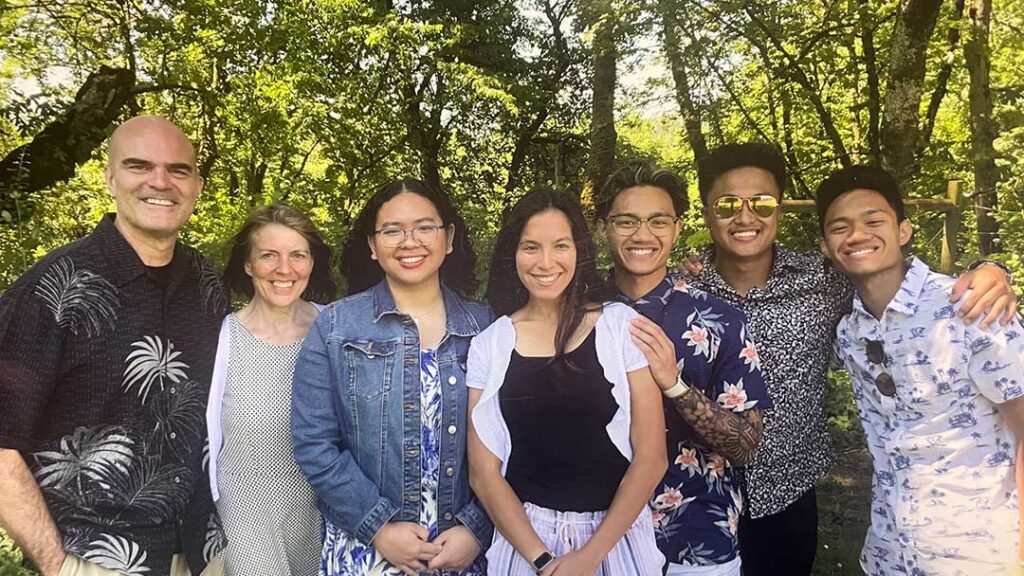Somewhere in your adoption journey — if you haven’t already! — you will probably hear someone talk about either Hague accreditation. You may have wondered: what is that, and what does it have to do with my adoption?
The bottom line is that working with a Hague-accredited agency (like Holt!) means you can have confidence about your adoption. Rest assured that each step of the process is ethical and operates in the best interests of the child. Here are a few more points that are important to know!
In 1993, the Hague Convention passed a set of international policies and procedures regarding international adoption. They were designed to ensure that international adoption occurs ethically, focused on the rights and dignity of the child or children involved. Holt International pioneered many aspects of the Hague Convention. In addition, representatives from Holt also helped craft the legislation.
In the 1980s, two representatives from Holt traveled to the Netherlands. There they participated in the Special Commission to the Hague Convention on Intercountry Adoption. Their names were David Kim and Susan Soonkeum Cox, long-time Holt employees who advocated passionately for children and their rights.
In his book “Who Will Answer?” David Kim wrote, “The final draft was vigilantly worked out by more than 150 delegates from 67 countries with different languages, cultures, legal systems, and religions, and finally signed. It was the most important event since intercountry adoption services were introduced after the Second World War.”
The Hague Convention outlined best practices for cooperation between governments, establishing a central authority within a country to manage adoptions and accreditation of adoption agencies.
But why is Hague accreditation important today? What does it mean for adoptive families and children waiting to be adopted? We hope the following answers some of your questions!
Why is Hague accreditation important to adoptive families today?
Its requirements remain closely followed by reputable adoption agencies in countries around the world to this day. This ensures an ethical adoption process for all involved.
What differentiates an agency that is Hague accredited?
Agencies with Hague accreditation adhere to a high standard of transparency and diligence in their work with children, families and governments, both at home and overseas.
“Hague accredited agencies go through a process every four years to renew their accreditation,” says Lisa Vertulfo, Holt’s vice president of adoption services. “There are standards Hague agencies must meet in all areas of their adoption work. An accrediting entity reviews us. Then, in the middle of those four years, there is an ongoing monitoring and oversight process. They review things like our financials to ensure we’re meeting the standards, and they evaluate how we work with families, overseas partners and agencies here in U.S.”
So, when you adopt from a Hague-accredited agency, you can have full confidence that your prospective child was treated ethically from beginning to end. You are indeed their last, best hope for a permanent family.
“Holt always had most of the same standards for adoption — almost all of our process were the same before The Hague convention,” says Lisa. “But what this does it is gives you a structure and clear guidelines to work within. Right now, they talk about trying to keep the child with birth family or doing domestic adoption. We’ve been talking about that forever! Our philosophies have always been aligned.”
What does Hague accreditation mean for the child?
Hague accreditation also requires that any child who might be eligible for international adoption must first go through a process where all other options are exhausted. First, agencies like Holt pursue reuniting the child with their birth family, if at all possible. Sometimes the family cannot be found or voluntarily relinquishes their rights. If so, the next step is to pursue domestic adoption for the child. Hague accreditation prioritizes the child remaining in their birth country and culture wherever possible. If domestic adoption is not an option, then, and only then, does the adoption agency begin seeking a family for the child through international adoption.
Should I not pursue adoption with a country that hasn’t ratified the Hague Convention?
While Hague accreditation does establish important parameters for child protection, in the United States there is something called the Universal Accreditation Act (UAA). The UAA mandates that an adoption service provider (ASP), an organization like Holt, must comply with all of the Hague’s guidelines — regardless of whether or not the country they are working with has ratified the Hague Convention.
“Sometimes a country may not have ratified the Hague due to their nation’s level of development and organization,” says Lisa. “You have to have a strong infrastructure in place, for example, like a central adoption authority. Some countries aren’t equipped for that. But the UAA assures families pursuing an intercountry adoption that, regardless of which country they intend to adopt from, the [U.S.-based agency] they choose will comply with the same ethical standards of practice and conduct.”
In other words, pursuing international adoption from the United States ensures that any child on track to be placed with a family is already safeguarded by the highest standard of adoption protection.
What else should people know about The Hague convention?
“When you’re impacting so many lives with an adoption process, there can’t be too many safeguards around it,” says Lisa. “I think that Hague accreditation really just provides that structure and safety. You are doing things in the best interests of the child’s birth family, foster family and future adoptive family. I think that adoptive parents, especially informed ones, want to make sure that all those things are in place.”

Sign up for an Adoption Information Meeting!
Are you considering adopting a child? Attend a free Zoom adoption information meeting to learn about country requirements, parent eligibility, the profile of children waiting for families — and ask any other questions you have about international adoption!


